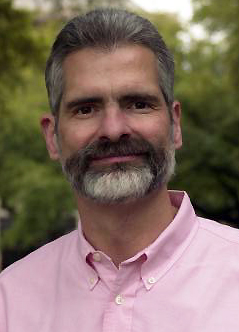Researcher Finds Money Can't Buy Happiness, But Happiness Can Buy Money

Follow us on Twitter:@BaylorUMediaCom
Positive psychology - the study of how to improve a person's happiness and quality of life - is a new trend that is rapidly changing traditional psychology and mental health care. The idea is developing after years of evidence-based research and a Baylor University professor is helping lead the way.
Dr. Michael Frisch, a professor of psychology at Baylor, has put forth the newest and, some say, the most comprehensive approach to positive psychology in a new book, Quality of Life Therapy. Frisch will present his new book and related research findings on Oct. 7 in Washington D.C., at the International Positive Psychology Summit, the premiere group in the field that helps bring attention to emerging ideas or treatments. The summit will be held at Gallup Headquarters, 901 F Street NW.
Presenting a paper co-authored by a University of Pennsylvania psychologist and three of Frisch's students, Frisch will speak about his approach, which utilizes his positive psychology test, the Quality of Life Inventory, or QOLI, and a number of different interventions he developed. Frisch's approach was recently tested empirically in a controlled clinical trial and found effective by an independent researcher at Beth Israel Medical Center in Boston. Moreover, Frisch's approach is now being taught in university psychology programs across the nation.
Some interesting findings, Frisch said, include:
? As much as 50 percent of your happiness is inherited from your parents. The other 50 percent is made up of 16 specific areas in the QOLI, which range from health to goals to relationships.
? For many, faith and one's spiritual life are vital to happiness and fulfillment. Frisch said having faith allows people to be optimistic, which is another key trait found in generally happy people.
? Helping others and strong, rewarding relationships with loved ones and friends also are key factors.
? The physical setting of your home and other areas of life such as recreation, play and interaction with others can influence your life satisfaction.
? People who are more materialistic and place being rich as a high value tend to be more pessimistic and unhappy. Frisch found that while money can't buy happiness, happiness can buy you money.
"Happier people seem to have more initiative and productivity at work, and their customers and bosses are more satisfied, which can lead to a raise in pay," said Frisch, an internationally recognized positive psychology practitioner and researcher.
Positive psychology teaches a person how to apply his or her strengths, along with new psychology skills, to specific areas in their life in order to increase their overall happiness. Frisch's approach asks participants to rate the importance and satisfaction they feel in 16 different areas.
They 16 areas are:
? Health
? Self-esteem
? Goals, values and spiritual life
? Money
? Work
? Play
? Learning
? Creativity
? Helping
? Love
? Friends
? Children
? Relatives
? Home
? Neighborhood
? Community
"Overall happiness is like a salad and, in that, different people like different ingredients," Frisch said. "This approach has been hailed as the 'state-of-the-art' in positive psychology by the pre-eminent leaders in the field."
Frisch's approach has been used to help local professionals in business, law, medicine and education to feel more fulfilled and to be more productive in their careers. Frisch also recently applied the QOLI in a college setting and found it can predict, one to three years in advance, if a student will stay in college.
"Positive psychology is being used to help both everyday people and, more recently, to improve and enhance traditional mental health treatments for psychiatric disorders like depression." Frisch said. "It really can benefit everyone."
Contact: Terry Goodrich, Assistant Director of Media Communications, (254) 710-3321